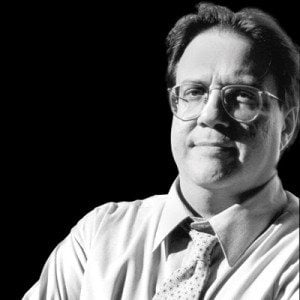Perry’s Campaign Shed Light on Texas Environment

A version of this story ran in the February 2012 issue.
In September, a high-ranking Manhattan editor who worked on Scott McClellan’s bestselling takedown of the Bush administration told me she was inundated with book pitches from Texas journalists eager to write about Rick Perry, the presidential candidate. Around the same time, Politico quoted Texas Tribune editor Evan Smith saying, “I have dropped to my knees before bed every night and prayed that this man would run for president.”
Journalists soon realized that Perry’s run for the White House wasn’t going to make for great political journalism. Of course, 2012 uncorked with Perry still stumbling, and Texas Monthly’s Paul Burka saying, “The best thing he can do for Texas in the time left to him is to resign.”
On Jan. 19, Perry suspended his presidential campaign. Did his national foray mean a damned thing for journalism in Texas? One Austin insider suggests an intriguing possibility: The national media’s fascination with Perry’s decade-long environmental record might actually lead to a renewed reportorial emphasis on the environment in Texas.
The last few months have seen hard-hitting environmental pieces about Texas in The New Republic and Mother Jones, and by former Observer managing editor Chris Tomlinson, now with the Associated Press in Austin. The big mainstream Texas papers have done their bit, too, publishing stories about Perry’s abysmal environmental record (though too often settling for he-said-she-said coverage of the governor’s squabbles with the Environmental Protection Agency).
It was encouraging to see some attention paid to what may be the state’s single most egregiously under-reported issue. But, that said, don’t look for Texas venues to reintroduce the kind of day-in-day-out reporting the state’s best environmental journalists used to do in the glory days of newspapers.
Jim Schermbeck, among the state’s most courageous environmental advocates, told the Dallas-area Pegasus News that readers “certainly can’t rely on more mainstream resources anymore. … If people really want to know what’s happening with public health and environmental issues in [the Dallas-Fort Worth area], they need to plug into the myriad of citizen and group blogs and websites that are out there breaking news every day.”
He’s right. It’s too much to hope that big outlets will ever recreate dedicated environmental beats. But it’s clear there is no shortage of stories to pursue. To cite just one example: San Antonio residents deserve a full investigation of pollution on the outskirts of the old Kelly Air Force Base, which is located in a predominantly Latino community. An investigation should examine whether the contamination is part of a national pattern near U.S. military installations.
Perhaps, if the trend toward hyper-local news continues, news outlets will pay more attention to such “in-my-backyard” environmental hazards. Last year, citizen journalists in North Texas explored how mineral rights and fracking controversies evolved in increasingly urban areas. As affluent white Texans flock to East Austin and Oak Cliff in Dallas, there might even be an upsurge in accountability reporting on neighborhoods, long victimized by abject environmental racism.
While we can wish that hard-hitting environmental journalism inspired by Perry’s presidential campaign will continue in Texas, readers might better focus on the consistently excellent work done by The Texas Observer’s Forrest Wilder and the swelling ranks of online grassroots investigators and bloggers around the state. There’s Schermbeck’s Downwinders At Risk site. Sharon Wilson’s Bluedaze website has examined the environmental record of the former editor of The Oak Cliff Tribune, former Dallas City Council member, and gas industry advocate Mark Housewright, and scrutinized a Texas Tribune event last year that provided a forum for T. Boone Pickens and other natural gas heavyweights.
Bottom line: There is at least a bit more awareness. You know things have changed when The Dallas Morning News named Port Arthur environmental hero Hilton Kelley a finalist for its 2011 Texan of The Year. (Just a few years earlier, the paper named Karl Rove Texan of the Year, with political reporter Wayne Slater describing Rove as “someone of uncommon character who demonstrated both leadership and vision.”)
Maybe, just maybe, Perry’s failed presidential run exposed a bit more of Texas’ toxic underbelly, reinvigorating mainstream media coverage of the environment while empowering a hell of a lot more citizen journalists.


